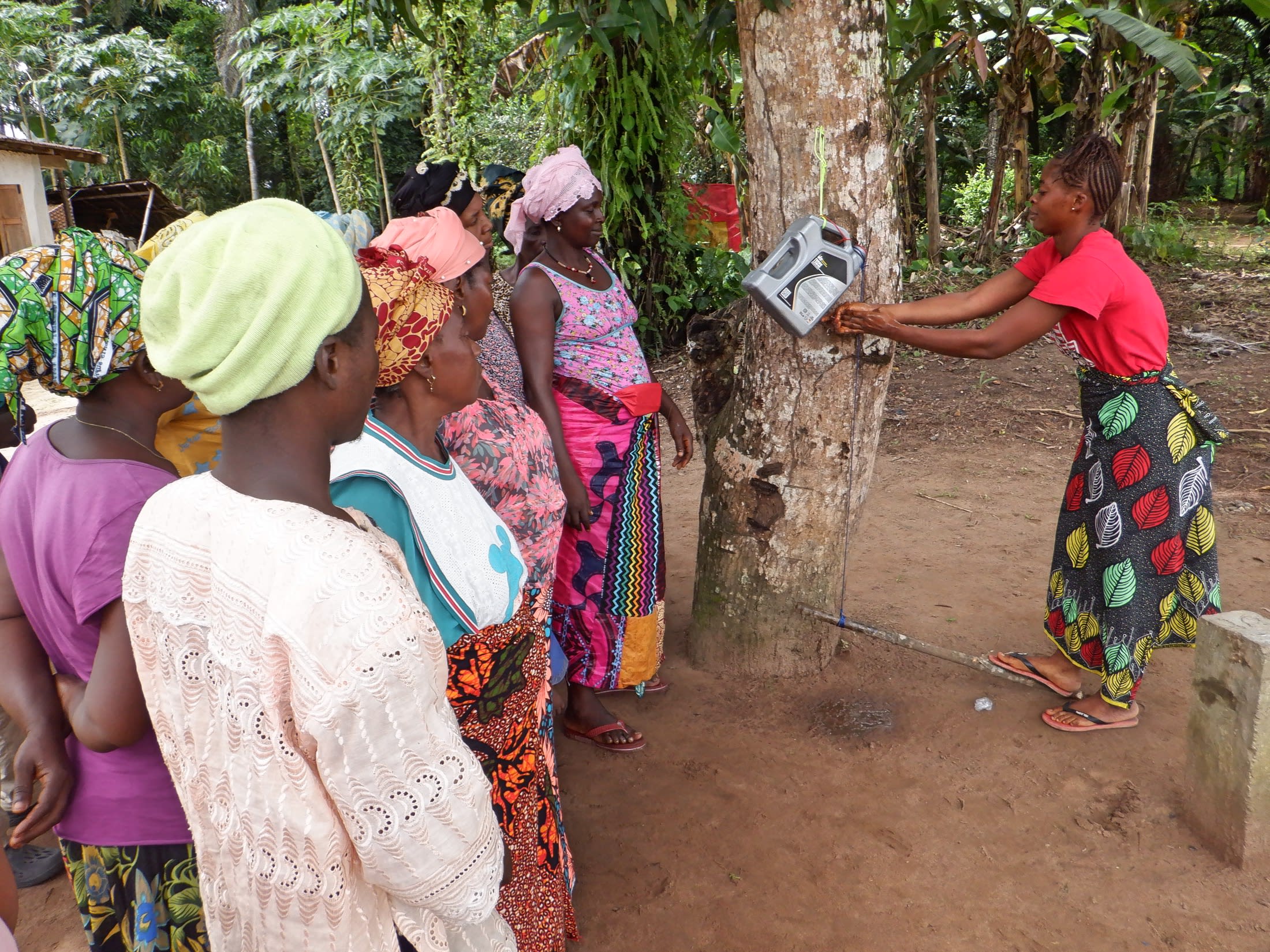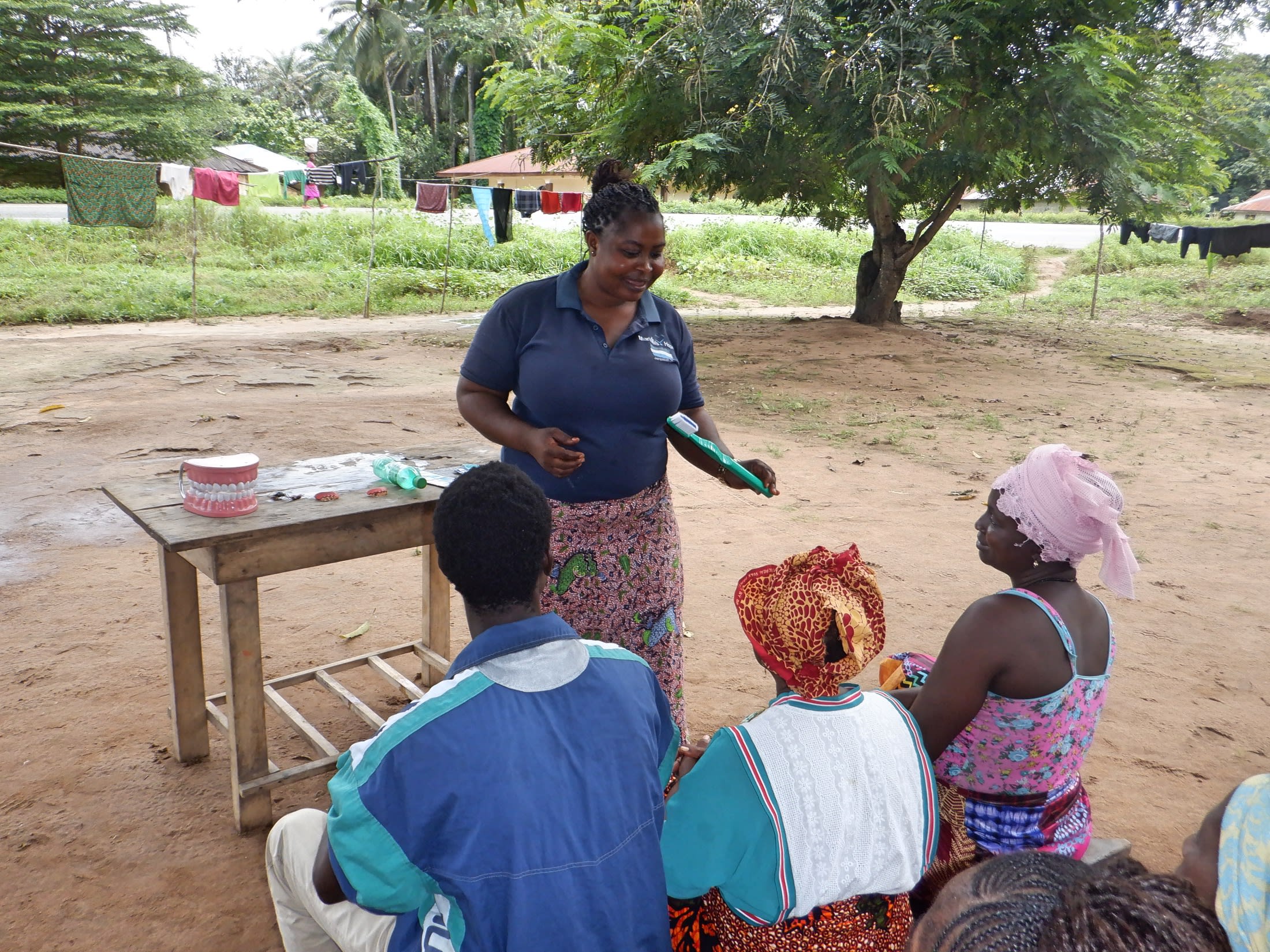The 82 people who live in this area of Komrabai rely on the local swamp for water. Without it, there would not be sufficient water to meet their daily needs, but understandably, using it as their primary water source creates multiple problems.
For 15-year-old Mbalu (shown below collecting water), fetching water here is especially scary.
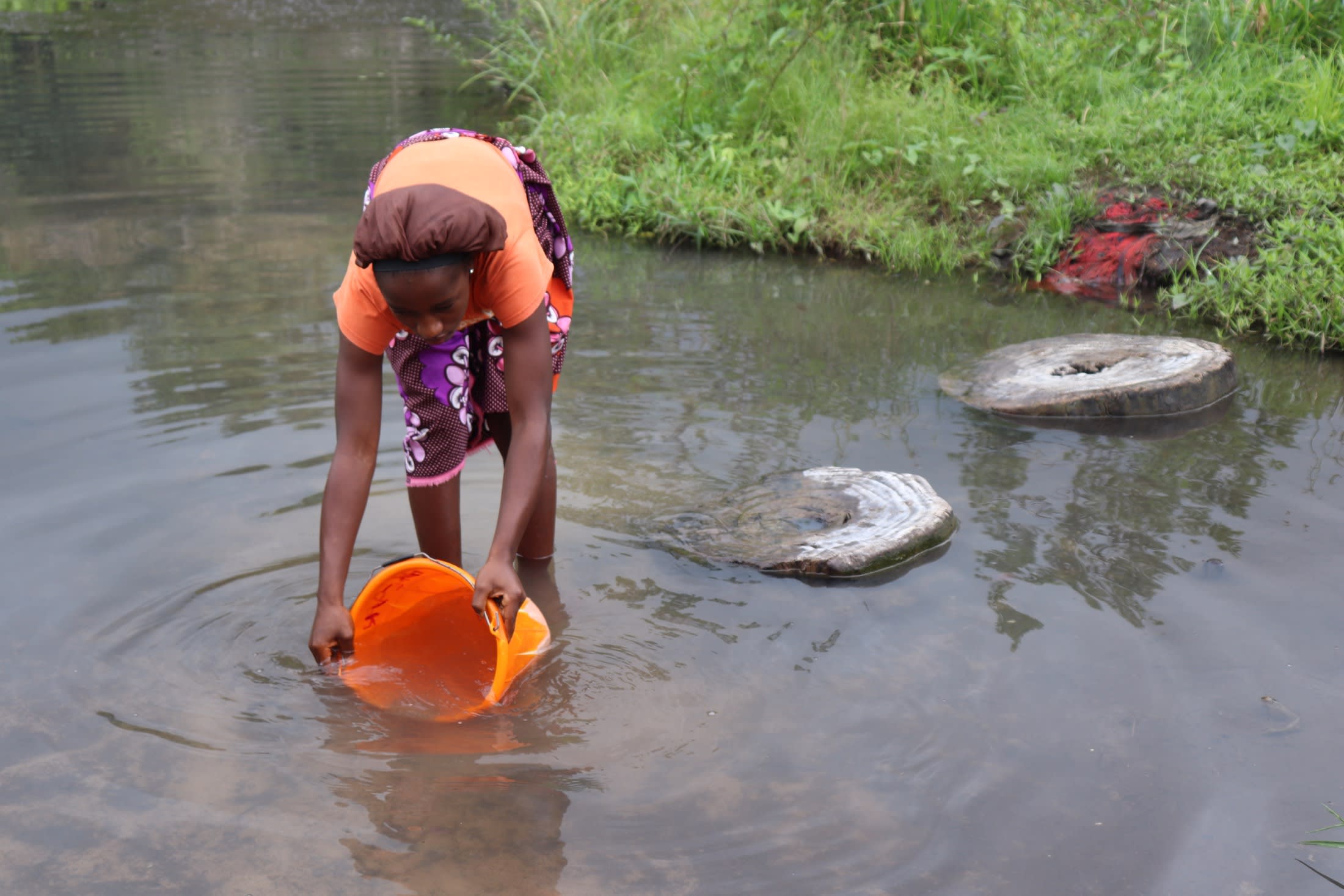
"The road leading to this source is bushy and dangerous," said Mbalu. "Animals like snakes reside in the bush. I was once attacked by a very big cobra at the stream. If not for the intervention of the youth that was around, I should have lost my life that day. Due to this situation, I was terrified of going to the stream alone unless someone accompanies me."
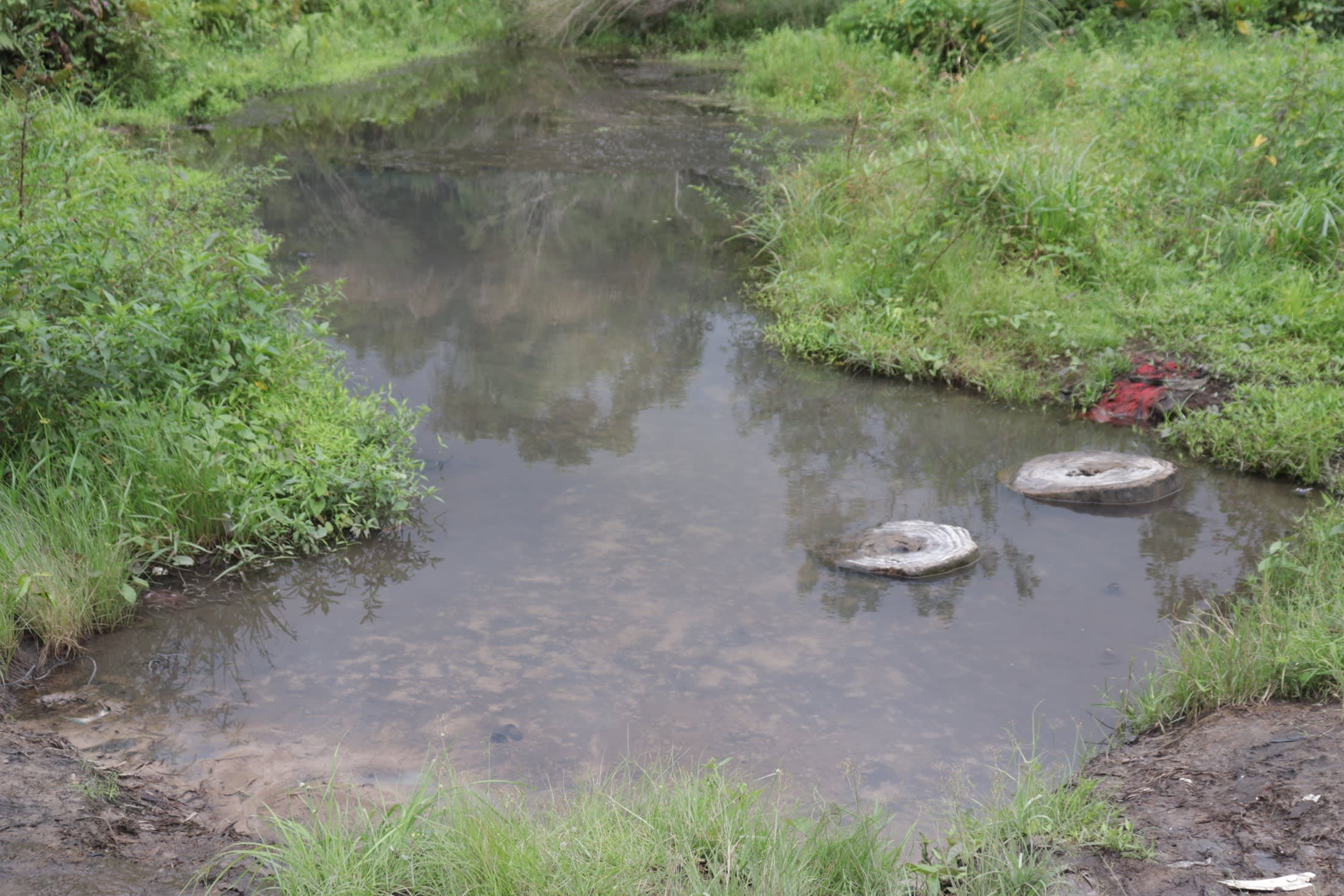
But her fear is not the only issue. The swamp is far away from the community, and the water gets stirred up, needing time to settle after each person collects water. Therefore, a lot of time is consumed both collecting and waiting for water.
"The only option for me is stream water, but this source is located far from the community," said Mbalu. "Apart from this, fetching drinking water would be difficult for me since the water at the stream easily changes in color. I would wait for over an hour just for the water to regain its original color. These waiting times make me go late at home, and my parents would be angry with me, failing to understand the cause of my action."
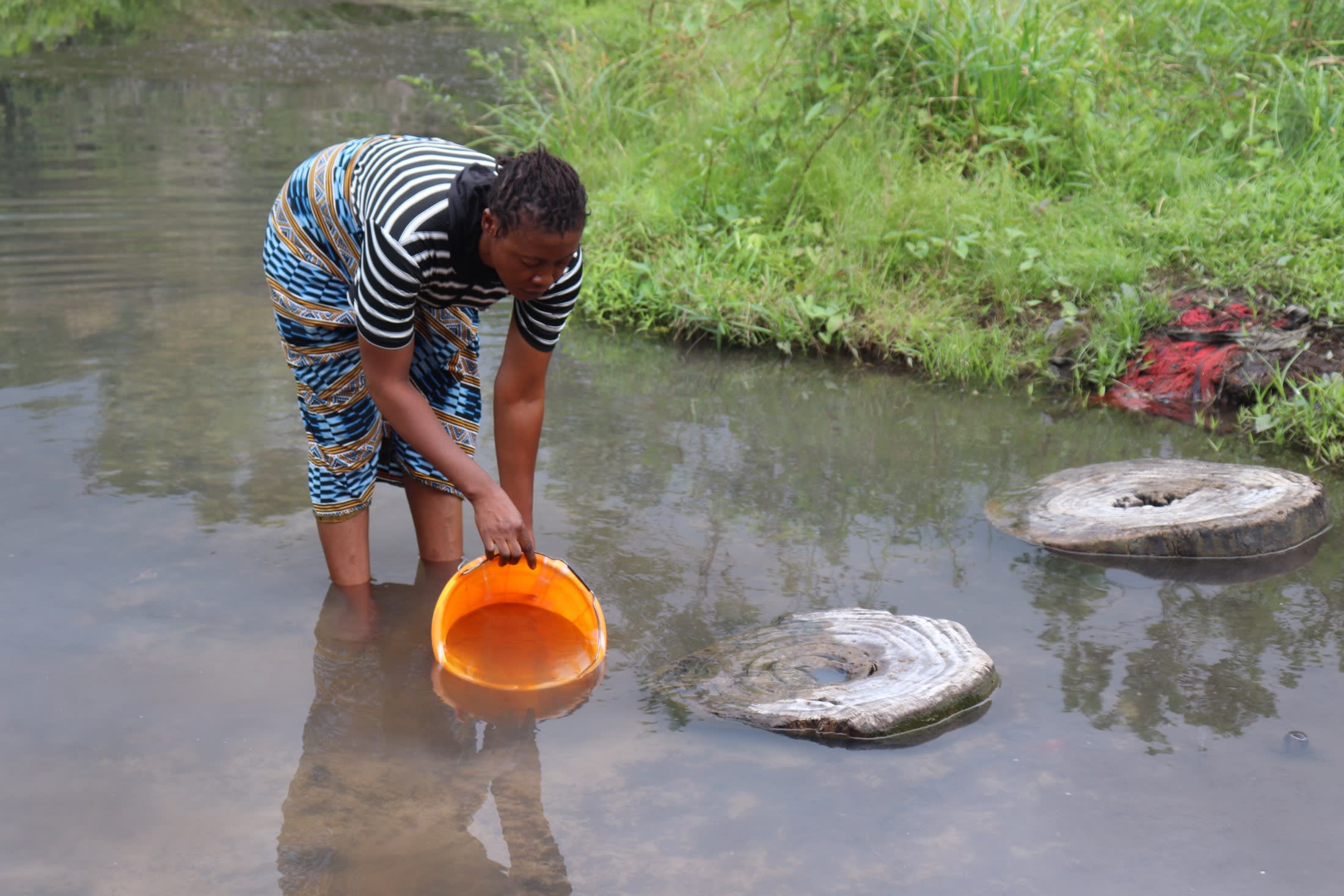
Mabinty Kamara, a 38-year-old petty trader, also wastes her valuable time at the swamp. "Although the stream does not [dry out], the water at the stream becomes dirty to the point that I must wait to fetch water, especially for drinking purposes. The reason for this situation is that we must enter the stream with our feet. A lot of people enter the stream on [a] daily basis with bare feet and different containers. During such situations, the water at the stream gets extremely dirty."
Mabinty continued: "Another challenge that is attached to the stream water source is the hill that is difficult to climb. Climbing the hill with heavy containers of water on my head is really difficult. With the slightest mistake, one would easily fall to the ground."
There is a community well (the one in need of rehabilitation, shown below), but it faces several issues, the first being that it's overcrowded since it's used by people from multiple communities.
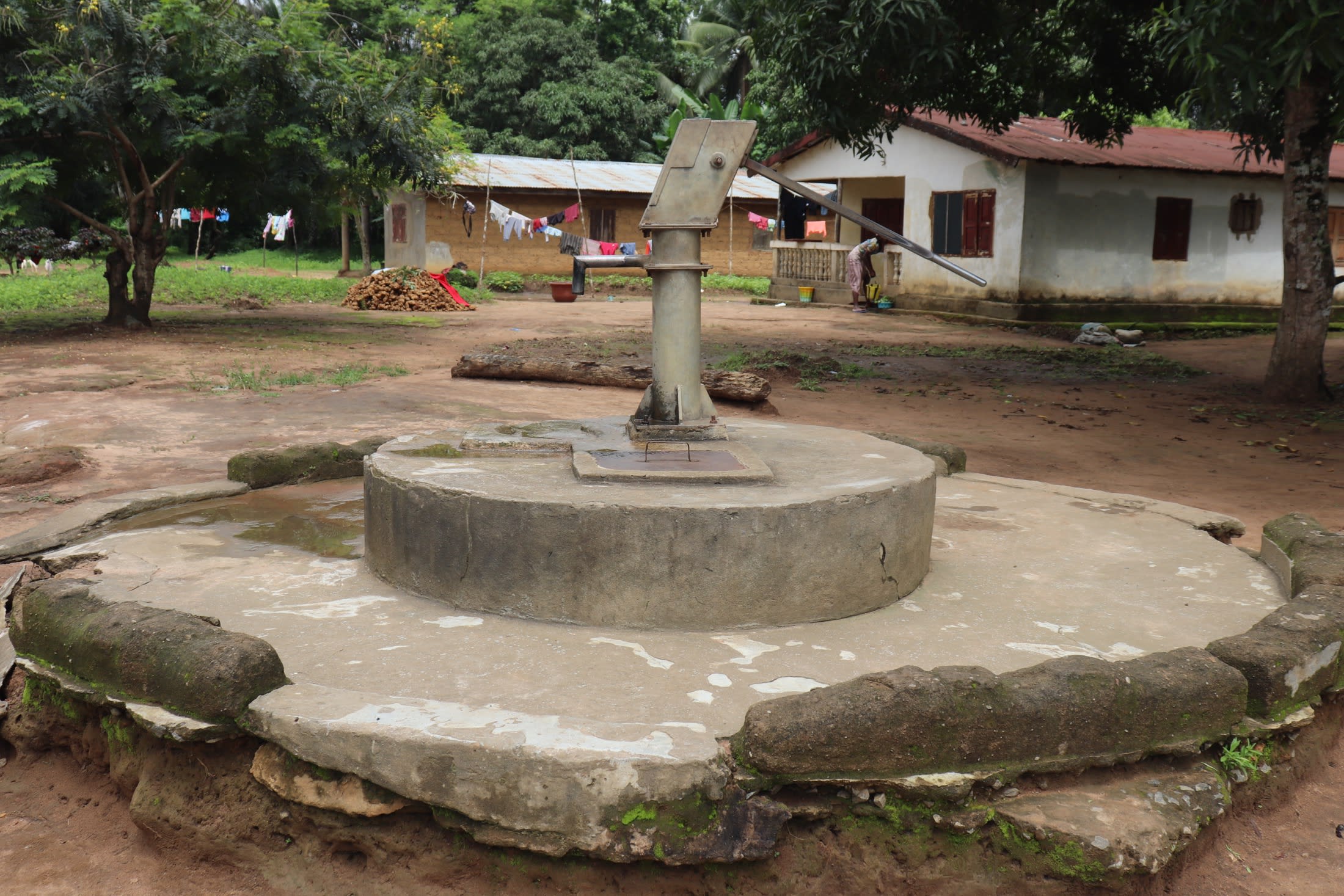
"It is very difficult to access water in my community because our main water source is congested with a lot of people, especially in the morning hours. This situation leads me to [take a long time] since the competition would be high at the water point," said Mbalu.
"The only water well in this community is not enough for us," said Mabinty. "A lot of people from other villages would fetch water at our main source. This situation has led to a high demand of water in the community. During such instances, some of us would not be able to get water at the time we need it. This has affected my activities at home, and even the trade that I am doing."
The well is also unreliable in producing enough water, especially during the dry season when the water levels are lower, and it is slow to recharge. Sadly, the water it can produce is often dirty and muddy, making it less than desirable to use, especially for drinking. And for at least a couple of months a year, the water dries up completely, and people have no choice but to resort to the swamp.
"There are times the water source produced low water in the dry season, and the water gets dirty. Unless they lock the pump so that water will flow enough before the pump is open," said Mbalu.
"I would be happy if our well would become functional again. All the water constraints I am presently undergoing would definitely become a thing of the past," Mabinty concluded.
By rehabilitating the well and making it deeper, water should be available in the community throughout the entire year without concerns for its quality. And Mbalu and fellow community members should be able to quickly and safely collect the water needed without worrying about harm.
Here's what we're going to do about it:
Well Rehabilitation
The well marked for this overhaul is dry for a few months every year and needs major work to supply adequate, clean water to the community year round. The pump will be removed, and a hand auger will be lowered inside and powered by a drill team. This hand auger will allow the team to drill several meters deeper to hit a sufficient water column that will ensure the well supplies water throughout all seasons.
As the team drills, casing will be installed, transforming the bottom of this hand-dug well into a borehole. PVC piping will connect this lower system directly to the pump, a construction that we know will also improve the quality of water.
Once this plan is implemented, everyone within the community will have access to safe drinking water in both quality and quantity, even through the dry months.
Hygiene and Sanitation Training
There will be hygiene and sanitation training sessions offered for three days in a row.
After our visit, the hygiene and sanitation trainer decided it would be best to teach community members how to build a tippy tap (a hand-washing station built with a jerrycan, string, and sticks). They will use these tippy taps for handwashing demonstrations, and will also teach about other tools like dish racks and the importance of properly penning in animals.
These trainings will also strengthen the water user committee that manages and maintains this well. They enforce proper behavior and report to us whenever they need our help solving a serious problem, like a pump breakdown.





 Borehole Well and Hand Pump
Borehole Well and Hand Pump
















